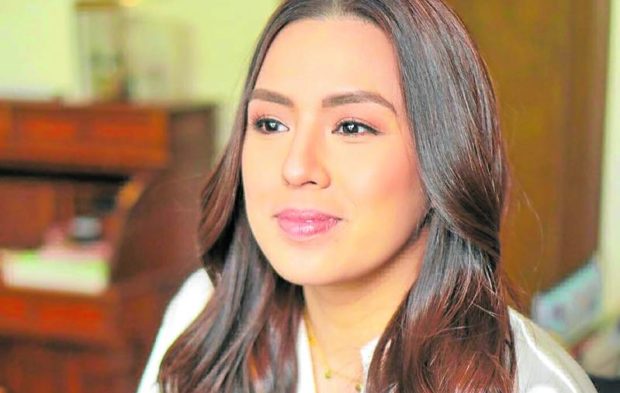It’s funny because women are the best at multitasking. That’s what we’re good at. We can have so many windows opened in our heads and can get all of them to function.”
Thus said actress-TV host Nikki Gil-Albert who moderated the recent virtual panel discussion organized by Google Philippines that highlighted the challenges that women face: from body shaming to dealing with disabilities and how they rose above it to eventually encourage other women to do the same.
“It’s really important for us to have platforms like this to help educate others, particularly those who aren’t aware that their words and actions offend us. We just have to be patient as we try to educate,” added Nikki, who is wife to businessman BJ Albert and mother to son Finn and daughter Maddie.
Break the bias
Google Philippines celebrated March as International Women’s Month by featuring four women YouTube content creators who were able to break the bias and chart their own journeys of equality during the online event titled “Breaking the Bias: Online and Beyond” on March 30.
“I believe that in order for us to break the bias, one of the steps we have to take is to ‘Ask Her First.’ The simple habit of asking, rather than assuming, can lead more women to realize their full potential and succeed in what they choose to do,” said Bernadette Nacario, Google Philippines country director.
“It’s a kind of microaggression when you hear, ‘Kaya mo ba, babae ka lang?’ On the other hand, there are people who really mean well. This is why it’s important for us to do just that: ask first. It’s just that some people had to include the word ‘lang’ in ‘babae ka lang,’” Nikki pointed out.
Helen Payawal, who hosts the YouTube makeover show “Helen on Fleek,” said: “Growing up, the beauty standard was all about being sexy and in order to be sexy, you needed to go on a diet. As a plus-size woman, I did not fit those standards.”
Limitless
Helen revealed that, as a content creator, she often came across comments about her size and how “it’s embarrassing” to see a person like her wearing swimsuits. “There’s this one quote that a friend shared with me that I will never forget: ‘Be someone whom you needed when you were younger.’ I want to be someone who can inspire my fellow plus-size women. Once you get over the shyness and what people think about you, you will be limitless,” said Helen, who also runs her own clothing and swimwear line.
For Jozelle Tech, a content creator and CEO of her own brand creative consulting firm, The Rolling Media, living as a differently-abled person sometimes has challenges beyond the disability itself.
People living around her are prone to make assumptions, she observed. “That I would need help or that I won’t be able to do certain things,” said Jozelle, who was born with spinal muscular atrophy and uses a wheelchair to move around. She said there were many instances when people would ask Jozelle’s companion about her instead of directly asking her. “They think I can’t handle the conversation on my own. The crazy thing about it is that I’m right in front of them,” she recalled. “By approaching my companion first, I’d feel like you see me as someone unequal or incapable.”
Nikki added: “I listen to you now and I imagine how these biases affect you in multiple layers. You are first and foremost, a woman, but you are also a differently-abled woman. I understand that these stereotypes are deeply entrenched in our culture. I don’t know if it’s a Pinoy thing that we immediately assume something instead of asking first.”
Filmmaker Egypa Balindong felt that while being a woman was a struggle enough, being a young Muslim woman and a minority were even bigger struggles. “People will always question your talent, capacity and credibility; and they will discredit your achievements just because you’re a woman,” Egypa began.
Opportunities
She then recalled how she was able to turn these challenges into opportunities. As a filmmaker, Egypa used her YouTube channel to show her life as a Maranao, as a Muslim, and most of all, as an empowered woman. “I had to be brave enough to educate people about my culture and religion. By simply sharing my daily life with my friends and family, I was able to make people see that we are not different,” she stressed.
Before being a work-from-home mom and entrepreneur, Arra Solis (Rookie Mommy PH) used to have a regular office job. There, she experienced being passed over for a leadership position and not being able to make work-related decisions on her own. “I was never really asked first if I wanted to do something or if I’m able to do it. This was when I learned to speak up,” explained Arra, adding that she wishes her young daughter would grow up not having to experience what she went through. “I hope that we get to a place where gender, skin color, religion will not hinder her from getting the career path she wanted.”
Nikki interjected: “I’ve never worked in a corporate setup—my husband and sister do—but I noticed that gender bias is most apparent in the corporate setting because they say that it’s a man’s world. We still have a long way to go in terms of workplace gender biases.
“This has been an empowering discussion,” Nikki declared. “This is just the beginning. I’m looking forward to this snowballing into a huge movement that will educate and help create a culture of inclusivity.” INQ
